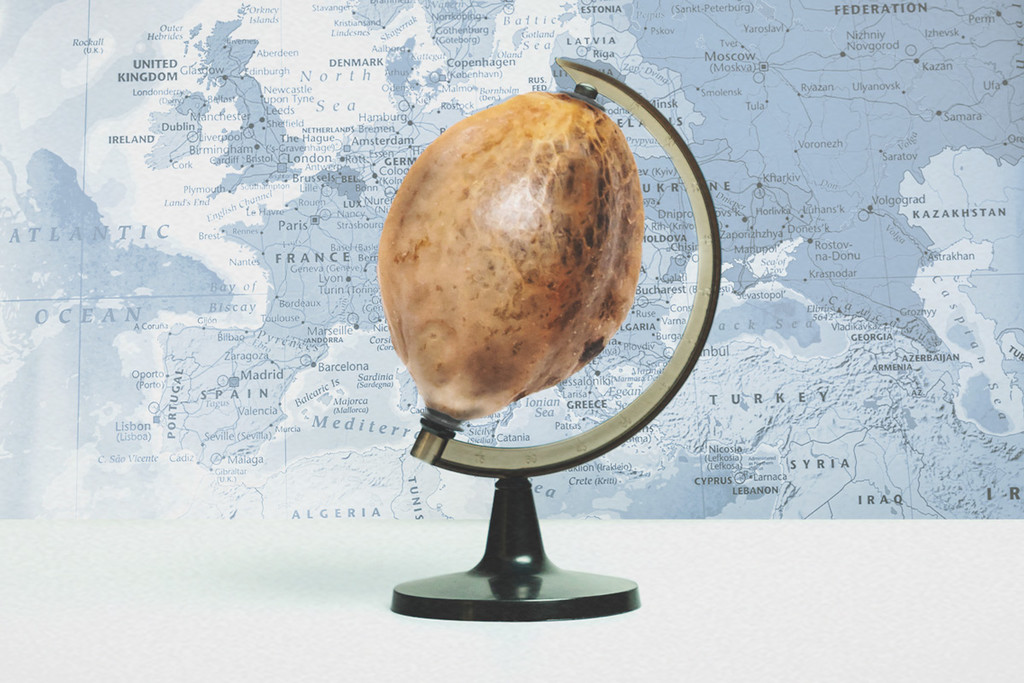.
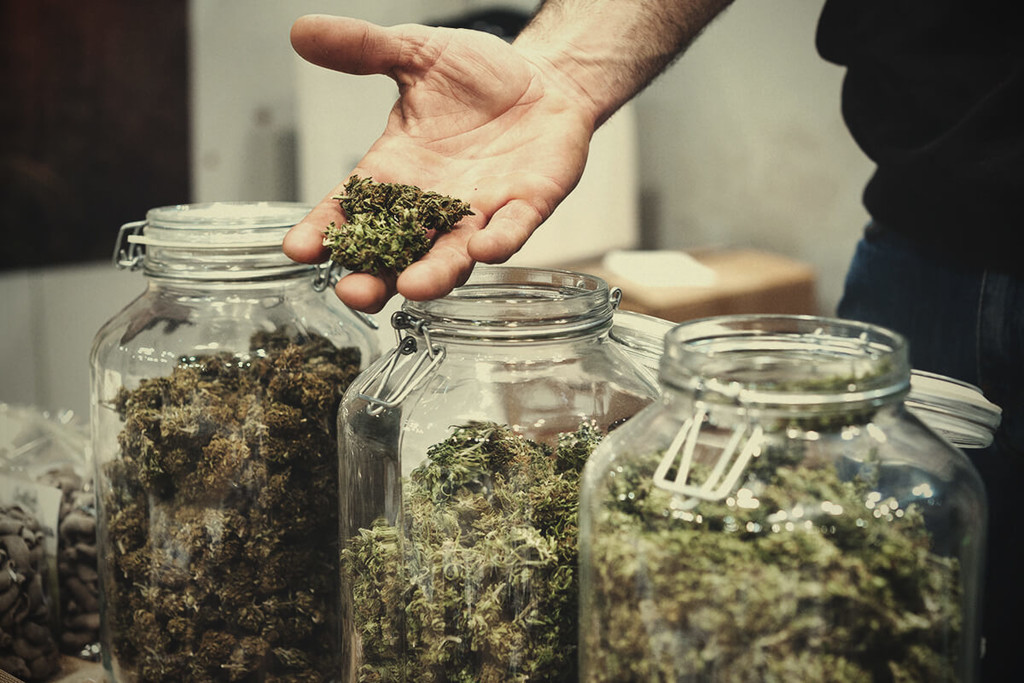
Is Regulation Failing Cannabis Social Clubs in Spain?
In Barcelona, and other parts of Spain, it is possible to join members-only clubs in order to grow and smoke cannabis. The laws that allow this are lax and liberal, but are they paving the way for violent crime?
Contents:
Spain has long had a permissive attitude toward cannabis, with personal use being decriminalised in the 1970s. Indeed, in Barcelona, a statue of Christopher Columbus bears a relief of two cannabis plants growing up the column. He is well-known for using hemp in many things, including the sails of his ships, and is rumoured to have smoked it. It is even thought that he may have smuggled it into Europe.
So cannabis is a part of Spanish history and culture, and nowhere is this more obvious than in Barcelona’s cannabis social clubs. These non-profit clubs exist to allow members to enjoy growing and smoking cannabis in a safe, legal environment. But a lack of legislation alongside poor enforcement leave these permissions open to abuse by criminal gangs. What can be done? And does it threaten Spain’s cannabis scene?
What Is a Cannabis Social Club in Spain?
The cannabis social clubs of Spain, particularly Barcelona, are the result of soft legislation and legal gray areas, rather than legalization or even decriminalisation. A cannabis club in Spain is, supposedly, a non-profit group organization of members who come together and pay upkeep fees to smoke and grow cannabis. Selling cannabis is not legal, and so membership fees are only supposed to cover the club's operational costs.
There are many of these clubs now—hundreds, in fact. While some are official, others slip under the radar. Likewise, some stay more explicitly within the confines of the law, serving only a select number of trusted members, while others are essentially open to everyone, including tourists. In the past, people were only able to gain membership via a recommendation from an existing member. This kept the clubs close-knit, personal, and small. These days, however, many clubs have open doors, and business is booming.
What Does the Law Actually Say About Cannabis Clubs?
The law around cannabis social clubs is somewhat vague, and they exist by (in theory) not breaking any laws, rather than adhering to them. In Spain, it is not illegal to smoke cannabis on private property. And it is by working within this loophole that cannabis clubs are able to operate.
As stated, clubs are officially non-profit; the members simply pay an upkeep fee and get free weed in return. The weed grown by the club must be proportionate to the membership (around 0.1 oz per person) in order for it to count as being grown for personal use. Essentially, in a legal sense, these clubs are little more than a group of friends meeting up to grow and smoke cannabis together. In reality, though, things can be much different.
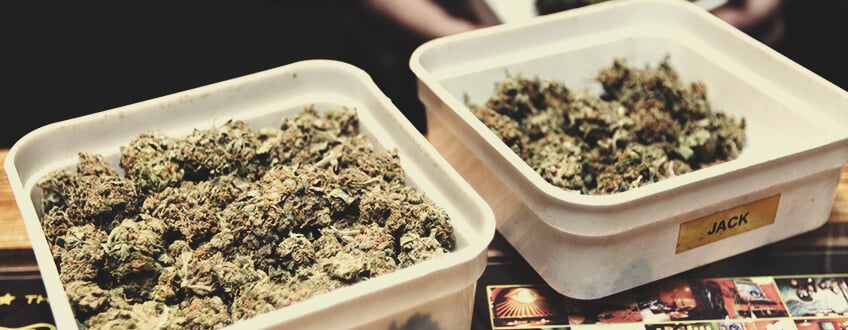
The Rise of Cannabis Tourism
Amsterdam is probably the most famous place in Europe for cannabis tourism, but as legislation tightens there, eyes are moving southward to Spain. In Amsterdam, the legal situation is very different, if not equally murky. Growing cannabis in the Netherlands for any purpose is illegal, but selling it within a coffeeshop is not. Where do they get their cannabis from, you ask? From illegal grows, the product of which becomes legal once it enters a coffeeshop. A strange set of circumstances indeed!
In Spain, however, it is legal for the clubs to grow and distribute their cannabis, so long as it is only to members. But how do you define a member?
With a lack of legislation and guidance surrounding membership of cannabis clubs in Spain, gaining access to one can be as simple as filling out an online form. This permissive attitude has its pros and cons. On the one hand, it means that pretty much anybody over the age of 18 can join a cannabis club and have access to good-quality weed in a usually safe and friendly environment.
On the other hand, it inevitably changes the culture from one that revolves around enjoying cannabis—and staying legal—to one that has a huge membership and must find ways to ensure this membership is continually supplied with cannabis.
Organized Crime Steps In
With such a huge membership, these clubs clearly have the potential to be hugely profitable. And as they are legally not supposed to make a profit, this is where problems begin to occur.
With ever-growing and fluctuating memberships, it can be difficult for clubs to grow enough weed for their members. As they can only grow a proportionate amount to their membership, and if their membership is always rising, there is going to be a continual deficit of weed available to them. Therefore, it becomes necessary for them to import weed from larger farms. At this point, it becomes illegal.
These larger farms, which operate to service cannabis clubs and coffeeshops, are run by criminals—often using a single club as a front to excuse the farm. As time goes on, these are more and more likely to become dangerous, organized groups that compete to make a profit.
But that’s not all. Spain is becoming one of the world’s leading cannabis exporters, especially in Europe, where Spanish weed can be found almost everywhere. Usually, it makes its way up through the Pyrenees to France, where it is then distributed across the continent.
This is causing significant problems for the image of cannabis clubs in Spain, because laws that were created to allow personal consumption are now being abused to facilitate the international drug trade.
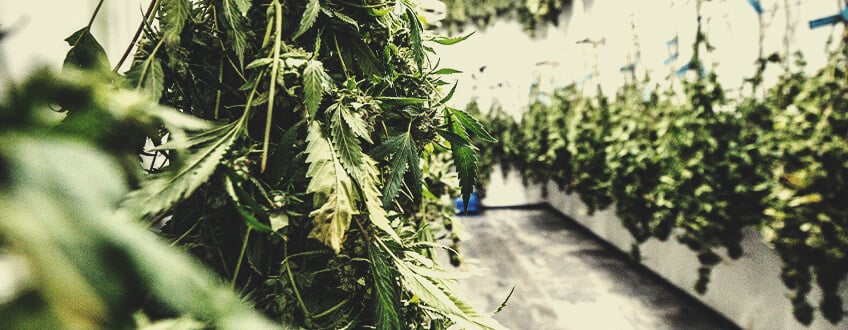
What Is Being Done About It?
There are numerous ways in which the Spanish authorities are dealing with, or considering dealing with, these issues. These range from tighter legislation to more relaxed legislation; but no matter which is chosen, without proper implementation, they are likely to continue to be abused.
Policing
As things stand, without the introduction of new laws, policing and managing these issues is all they can do. However, the police face significant issues when it comes to prosecuting offenders. Although the commercial production of cannabis in Spain is illegal, it tends to be met with fairly limited punishment.
As it’s a highly profitable industry, this makes the law little of a deterrent compared to the gains growers stand to make. So although the police are regularly raiding and destroying illegal grows, and arresting the growers, these people are commonly released with little to no punishment, and continue to operate. In practice, the maximum sentence for illegally growing cannabis is around two years, and often much less.
Likewise, policing can target the wrong people. Differentiating between legal and illegal grows can be difficult, and this means that many legitimate clubs are seeing their grows raided. Though further action may not be taken, this is still highly disruptive and casts a dark shadow on what is supposed to be a pleasant and relaxing pastime.
Tightening Legislation
Some suggest creating clearer, stricter legislation. Indeed, this happened in 2017 in Catalonia, and was known as the Rosa Verde[1]. The purpose of this legislation was to make clear the ways in which cannabis social clubs were allowed to operate, making it easier to determine which were acting legally and which were not. The regulations were as follows:
- Clubs are only allowed to grow a maximum of 5291 oz of dried bud per year
- Clubs must enforce a 15-day wait between application and acceptance of membership
- Clubs must use registered carriers to transport cannabis from farm to club
What do these reforms do? They limit a club's scale, forcing them to stay within the boundaries already laid out: to operate non-profitably. By placing an absolute and equal limit on the amount of bud each club can produce, they effectively limit how many members they could have, thereby limiting their potential profitability.
Likewise, they make farms growing for illegal supply purposes easier to detect. Rather than trying to identify whether a farm is for a club or illegal enterprise, regulators only needed to identify how much a farm was producing.
The limit on membership waiting times was clearly an attempt to stop tourists from spontaneously joining. However, as online membership was available, this measure was easily overcome by simply signing up at least two weeks before arriving. Nonetheless, for those less prepared, this was obviously a first step in stemming cannabis tourism.
However, this legislation was overturned by the federal Spanish court in 2018. It was deemed unconstitutional.
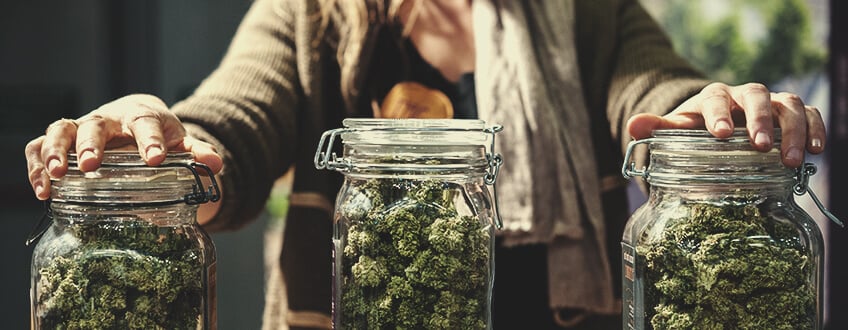
Broader Legalisation
Of course, rather than tightening legislation, why not relax it further? Some are calling for the regulations to be dropped, and for growing and profit-making to be legalized. The argument is well-known, and it goes that by legitimising the market, the criminal element would be ousted and the state would benefit from the profits.
So why not? There are numerous reasons that states are reluctant to fully legalize cannabis. For many, it is seen as creating an image problem. Within Europe, for instance, Spain would be the first country to fully legalize cannabis. While this would be seen as progressive by many, others would not share this point of view.
Moreover, were Spanish growers allowed to grow with abandon, it could serve only to proliferate the problems with the illicit international cannabis trade. By playing a role in supplying other countries with cannabis, it may not endear Spain to its European neighbors.
Domestically, while cannabis social clubs are tolerated and appreciated, commercialising the trade could be met with objection. As it stands, the promotion of cannabis is illegal. Were it commercially legalized, this and other laws could change. So rather than the state being seen as having a relaxed and liberal attitude toward peoples’ drug choices, it could be perceived as actively encouraging the use of cannabis.
The Current Situation
At present, Spain appears to be stuck in limbo. While Catalonia is clearly eager to push forward with legislation, hoping to regulate social clubs in order to continue their existence, the larger Spanish state is less certain with how to proceed. This means that, as things stand, they are set to continue in a loop of crime, arrests, and a lack of penalties.
Spain as an International Drug Hub
One of the dominant fears is that Spain has become, and will continue to be, a hub for the international drug trade. The world wants weed, and so long as legislation is lax in Spain, it is the perfect center for the production of European cannabis. However, with a lack of any real regulations, criminal gangs are fulfilling this need. And where does that leave Spain?
People cite the examples of Afghanistan, Morocco, and Colombia as countries that have suffered enormously due to their prevalence as exporters of illegal drugs. There are fears that parts of Spain will head in the same direction if nothing is done about illegal growing.
Indeed, gangs already compete for space and customers. Growing is not only performed by passionate hobbyists, but has become a dangerous and lucrative business that many are willing to fight over.
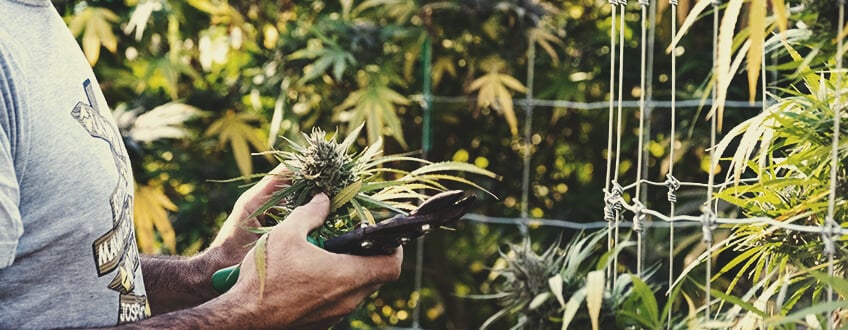
Cannabis Social Clubs: Progressive Dream or Legislative Nightmare?
On the face of it, a relaxed attitude toward cannabis consumption and growing in Spain is a great thing. And indeed, the thinking behind the law is that people have a right to grow and smoke cannabis if they want to, and that the state should take a liberal, laissez-faire attitude toward this.
However, vague legislation and limited enforcement against crime have led to these liberties being abused by organized criminal groups for the sake of profit, rather than for the enjoyment of cannabis.
With legitimate clubs being either raided by the police or intimidated by gangs, the atmosphere is changing from one of chilled relaxation to tense uncertainty. And what can be done? With the state unable to decide on a course of action, the current gray area is left exposed to abuse, which, in the long-run, could threaten the fate of liberal cannabis reform in Spain and beyond.
- BOE-A-2017-9367 Ley 13/2017, de 6 de julio, de las asociaciones de consumidores de cannabis. https://www.boe.es






























